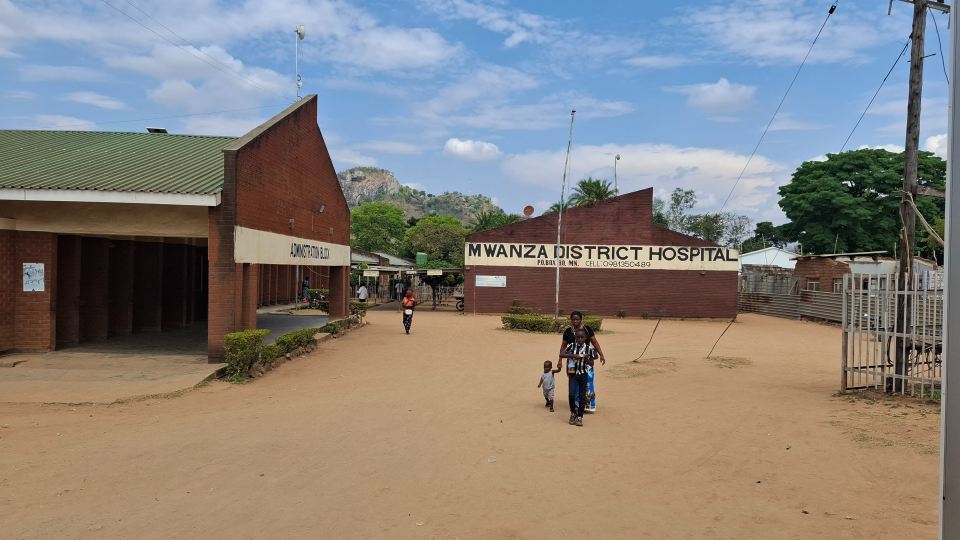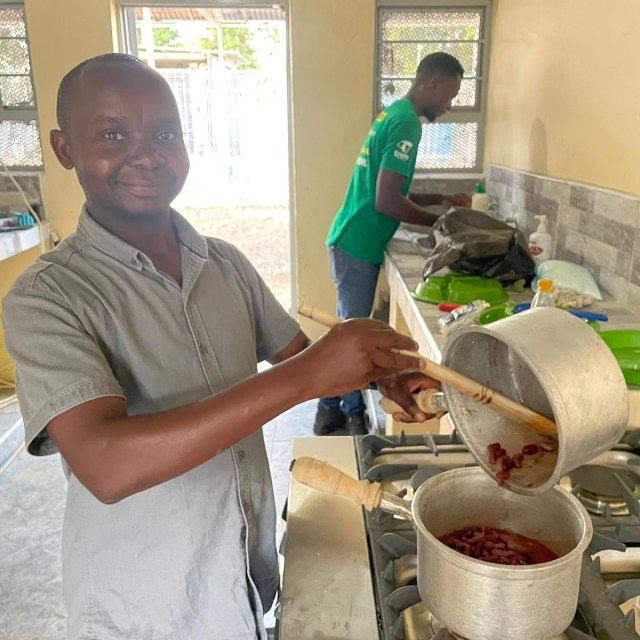In just over a month since the test unit arrived by shipping the container from CREST’s laboratories at Loughborough, the foundations have been laid, the battery-electrolyser commissioned, the main pit has been dug to house 350 metres of plastic pipe to store the hydrogen and the system connected to PV panels. A team of CREST researchers that developed the innovative technology were onsite for testing and witnessed the milestone. The group includes Professor Dani Strickland, Dr Jonathan Wilson, Dr Lizzie Ashton, Dr Martin Bliss, Dr Toby Reisch, and PhD researcher Soustain Chigalu.
Soustain’s research in partnership with Malawian renewable energy specialists INFLO Ltd explores the feasibility of using and deploying battery-electrolysers in Malawi to combat energy poverty. Engaging with the local community at the hospital to gauge their acceptance of the new technology is a vital part of his research as part of EnerHy, the EPSRC Engineering Hydrogen Net Zero Centre for Doctoral Training (CDT).
Cooking up some green hydrogen-powered bean stew in the hospital’s new kitchen, Soustain said: "I’m proud to be part of the battery-electrolyser research team. Working within the EnerHy CDT has given me the chance to turn theory into practice – starting from experiments with a single battery cell producing hydrogen in a bag, to building a full hybrid energy system. Today, that system combines a solar microgrid, battery-electrolyser, and energy storage that will deliver green hydrogen for cooking and clean electricity to this rural district hospital, serving very remote communities.”
The technical development and deployment of the battery-electrolyser system is part of the £1.5M Innovate UK MESCH (Modular Energy Storage with Clean Hydrogen) project, where CREST researchers are working with the Consortium for Battery Innovation, Ultima Forma, Monbat and RENAMA and INFLO in Malawi.
As well as providing enough energy for the new kitchen block – replacing the hospital’s previous reliance on firewood and charcoal – the system will provide backup solar energy for lighting, refrigeration, and medical equipment, for two wards, if required.
Commissioning tasks on the tank are underway to ensure a smooth handover. With Monbat batteries completing the setup, the system is on track to be fully commissioned and handed over to Mwanza District Hospital early next year.

